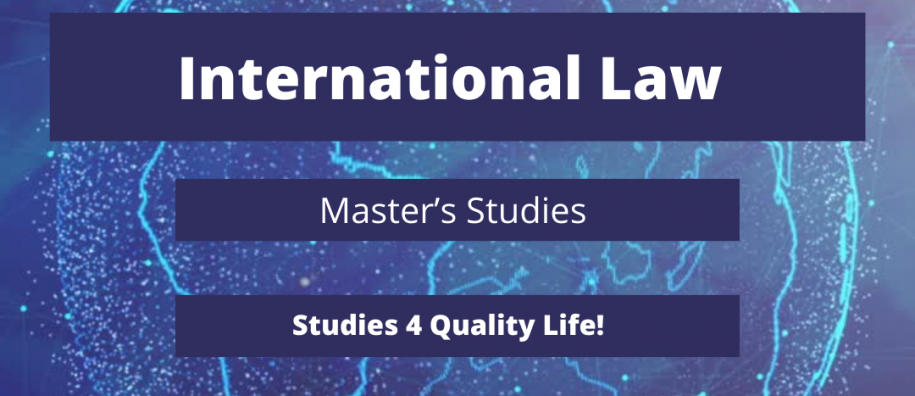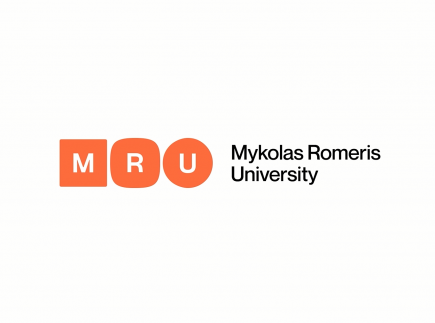
There's never been a better time to study International Law at Mykolas Romeris University's (MRU) Law School than now. Some quick answers to your questions about the programme here.
What qualification will I get at the end of this programme?
Graduates will be awarded an internationally recognised Master in Law degree in International Law.
Where is this programme taught?
MRU Law School lecturers teach international law and data security subjects as part of the Master's programme on the MRU campus in Vilnius. Students voted MRU the best university in Lithuania in 2020. It has a rich tradition in preparing students to be leaders. The University is named after Professor Mykolas Romeris, a patriarch and one of the pioneers of Lithuanian Constitutional Law between World Wars and an ad hoc international judge MRU has carried on this strong tradition with a focus on innovation. MRU has a solid support structure and the Law School is recognised as the No. #1 Law School in the country by the ‘QS World University Rankings by Subject 2022’. MRU has a very good research ethos and actively encourages interdisciplinary and innovative research in international law though student engagement in LAB work.
How is the programme structured?
The programme is taught in English. It is a full-time programme, with a duration of 1.5 years, and 90 ECTS credits. In the first semester, all students study International Human Rights Litigation and Dispute Settlement in Private International Law. Students also have a selection of Public International Law and Private International modules enabling them to specialise in one of these fields. In the second semester, there are Public International Law and Private International modules for students to specialise in. Students are strongly encouraged to go abroad under one of the University’s mobility programmes at a partner university or for international internships at organisations. In the first semester of the 2nd year, students work on a thesis.
What is the purpose of the programme?
The purpose of this Law programme is to prepare international law specialists who will be able to represent and defend the rights and interests of states, international organizations, international companies, and private persons in the international arena. Students who successfully complete this programme will be able to demonstrate knowledge and legal and soft skills, such as conceptual thinking, case analysis, legal research and teamwork. The program has been designed to respond to the challenges of globalization, particularly as they apply to national systems, organisations and private individuals.
What are the admission requirements?
Admission requirements include: a Bachelor's Degree in the field of Law and a good knowledge of professional English (at least B2 level).
How is the programme delivered?
The programme is delivered using experiential teaching methods. Many real-life scenarios are used in which students can apply the legal skills that they have learned including legal research, legal writing, legal reasoning and advocacy. There is also a strong emphasis on soft skills, such as creative problem-solving, strategic thinking, group work and leadership. This is because MRU's Law School prepares students for a quality life.
Who teaches the programme?
The programme is delivered by leading practitioners and experts, including former international and constitutional judges. They are all leaders in their field. They have contributed to research across the world. They all support students with their career development and provide other forms of support.
What career can I go into with the programme?
The aim is to prepare students for the future, including for jobs at international institutions, state departments, diplomatic missions, international law firms, international businesses and non-governmental organisations.
Where can I find out more?
Click here to find out more about the Master’s degree programme in International Law: https://www.mruni.eu/en/study_program/international-law
Apply now at: https://apply.mruni.eu/
This programme also includes knowledge about the General Data Protection Regulation (GDPR). It has been more than 4 years since the General Data Protection Regulation (GDPR) came into force. Personal data has expanded exponentially over the last few years and its use has the potential, unless controlled, to undermine people’s fundamental rights. This applies, for example, to the processing of personal data in automated decision-making. It’s important that people have the right to challenge the way in which decisions are made regarding their info by machines.
The Master of Law in International Law at MRU's Law School has a compulsory and practical module on Privacy and Data Protection. We place experiential learning at the heart of all of our International Law modules, so that students get the actual opportunity to apply legal skills in real life contexts. One of the assessments on the module requires students to debate and discuss a case study arising from data protection.
The direct assessment of skills, like oral presentation and advocacy, are at the centre of our modules. These are combined with soft skills, such as strategy and leadership, so that students achieve a high level of competence when it comes to using legal skills. In the Privacy and Data Protection module, students analyse contemporary issues arising with the GDPR, a key instrument given the importance of technology today.
For more info about Master of Law in International Law go to: International Law - MRU (mruni.eu)
